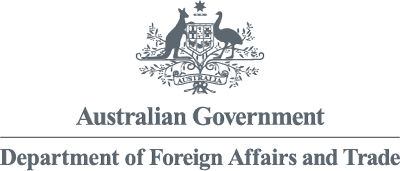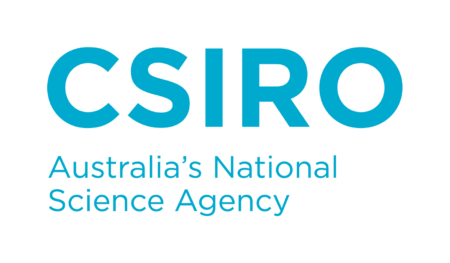Case Study: IPPIN Grants | DJAMU
How CSIRO and DJAMU are applying polymer science to real-world upcycling. A case study in Depok, Jakarta
This IPPIN Grant is supporting DJAMU to transform bottle caps into recycled plastic weaving yarn and filament while boosting employment opportunities for marginalised communities in Indonesia.

“By combining scientific research with community-driven impact, this program enables us to tackle one of the most urgent environmental challenges of our time in a meaningful and collaborative way,” Elizabeth McClean, DJAMU and Melissa Skidmore, CSIRO.
| Project Lead | CSIRO | Manufacturing Business Unit |
| Project Partners | DJUMA PT. Amandina Bumi Nusantara PT. Tropica Primanusa, Kurnia Teknik (Precious Plastic Bandung) CV. AL Ayu Larasati Ceramics. |
| Grant Support | Funding and partnership development |
| Grant Amount | $55,470 |
| Trial Location | Indonesia |
| Project Duration | 12 months |
The challenge
Achieving consistent mechanical properties in plastic recycled extrusion is challenging due to variability in feedstock, contamination, and degradation. These inconsistencies significantly affect the performance, safety, and marketability of recycled plastic products. Challenges such as this contribute to an alarming rate of unrecycled plastics and if left unaddressed, it is predicted that global plastic production will increase by 36 per cent or more over the next five years, potentially doubling by 2030.
The innovation
Through involvement in IPPIN’s Accelerator+ Program and the IPPIN Grant, CSIRO is partnering with DJAMU, a start-up transforming post-consumer beverage bottle caps into recycled plastic weaving yarn and filament in Indonesia. By improving the quality of recycled plastics, CSIRO is helping social enterprises like DJAMU turn more plastic waste into valuable products while also supporting community-based recycling. By combining DJAMU’s creative local solutions with CSIRO’s cutting-edge technical expertise, DJAMU will use this grant to tackle the challenge of achieving consistent mechanical properties in recycled plastic extrusion. The local lessons from Depok, Jakarta, will have global significance for innovative upcycling.
Find out more about DJAMU – DJAMU — UTOMO FILMS
Making an impact with IPPIN Support
Impact through the IPPIN Grant
This grant will help the project overcome the technical challenge of achieving consistent mechanical properties in recycled plastic extrusion, which currently limits the quality and reliability of products made from upcycled materials like bottle caps. It will also support analysis to better understand and manage issues that affect recyclate performance. Importantly, the grant enables collaboration between science and grassroots enterprises, helping to scale recycling solutions in regions heavily impacted by plastic pollution.
Beyond the technical, IPPIN has strengthened their capacity to work across sectors and countries, creating a foundation of trusted partnerships and shared understanding that will support the scaling of inclusive, science-driven circular economy solutions well beyond the life of the grant.
Invaluable skills and connections gained through IPPIN’s Accelerator+ Program
Without the opportunity to be part of the IPPIN Accelerator+ Program, the team would have missed the chance to apply cutting-edge polymer science to a real-world challenge faced by community-based recycling initiatives like DJAMU. This grant presents an opportunity to collaborate across disciplines and countries to co-develop practical solutions for improving recycled plastic quality. This project also supports social equity and livelihoods for Indonesia’s informal waste pickers.
Through IPPIN, our project team has gained valuable skills in cross-cultural collaboration, co-design, and is currently developing polymer science to real-world, community-led recycling.
Ensuring inclusive innovations through a GEDSI approach
This project is a strong example of Gender, Equality, and Social Inclusion (GEDSI) in action, as it actively engages and empowers Indonesia’s informal waste pickers many of whom are women by working to create dignified, income-generating opportunities through plastic recycling. DJAMU is a social enterprise that places community wellbeing and inclusion at its core, and ensures marginalised voices are central to both problem-solving and solution design. Complimentary to science-led research, this project values local knowledge, addresses environmental injustice, and promotes more equitable participation in the circular economy, contributing to both environmental and social transformation.
Next steps and opportunities
While the project has just started it is hoped the results will support regulatory and policy shifts by demonstrating a science-based, collaborative approach to improving the quality and consistency of recycled plastics, which is essential for meeting increasingly stringent environmental and product standards.
By developing a clear, documented protocol for identifying and solving technical challenges such as the brittle failure of recycled yarn, this project provides a replicable model to inform best practices across Indonesia’s recycling sector. Furthermore, the engagement of diverse stakeholders, including industry partners, community enterprises, and scientific experts, fosters stronger linkages that can influence policy development towards supporting circular economy goals, enhanced material standards, and inclusive waste management systems.
Further information
You can learn more about DJAMU’s work in this video featuring IPPIN’s alumni innovators: Meet the innovators tackling plastic waste in the Indo-Pacific on Vimeo
For partnership or investment enquiries, contact the IPPIN team:



